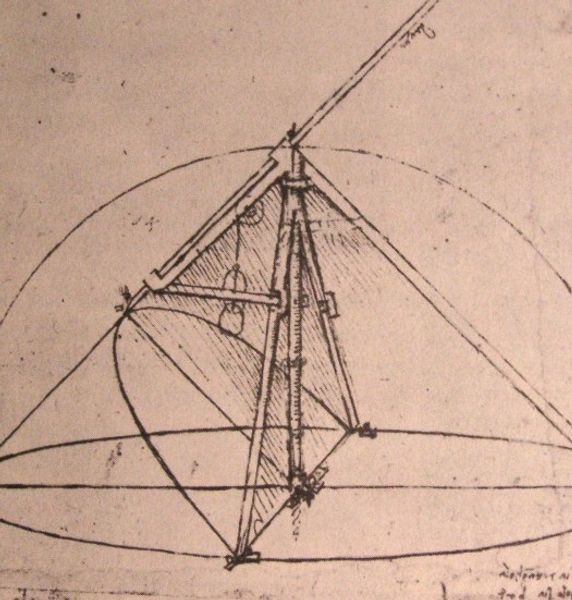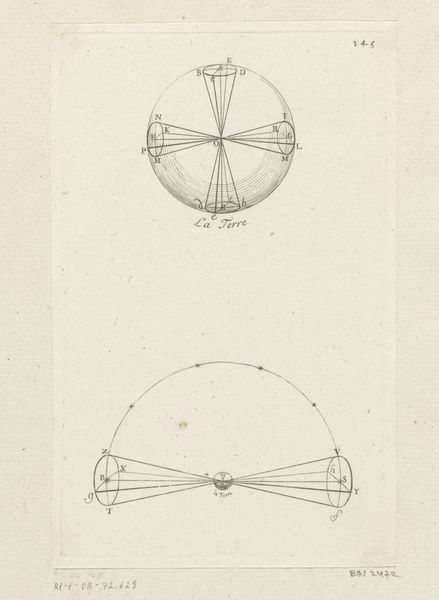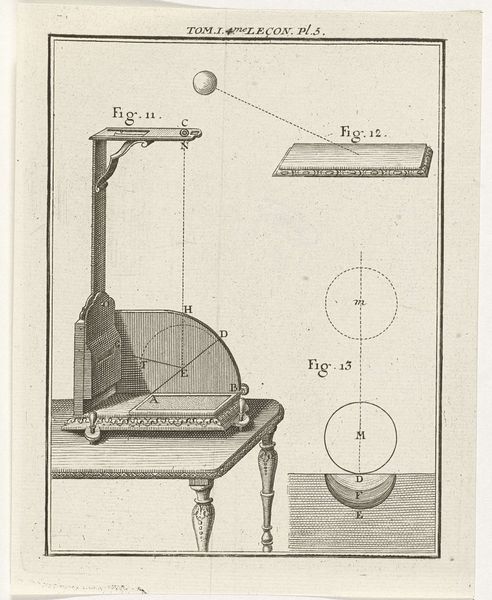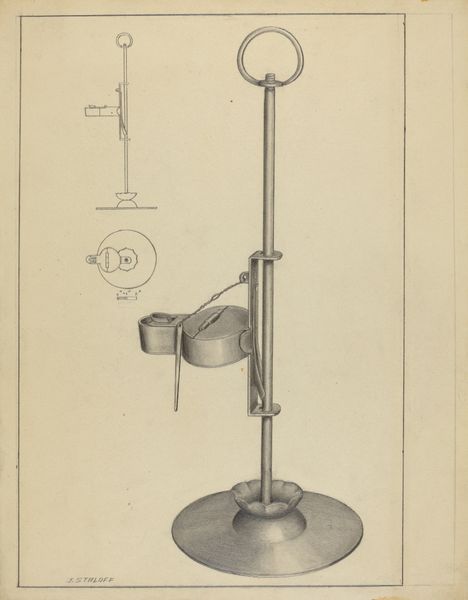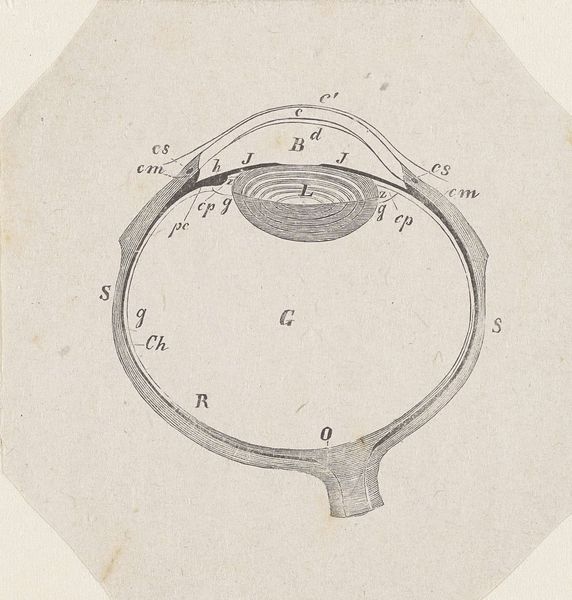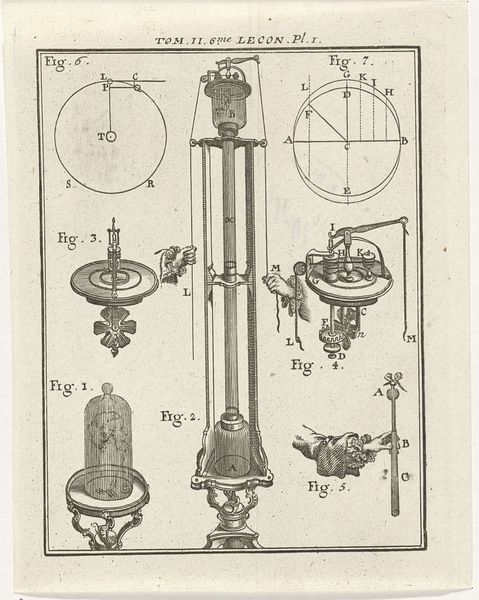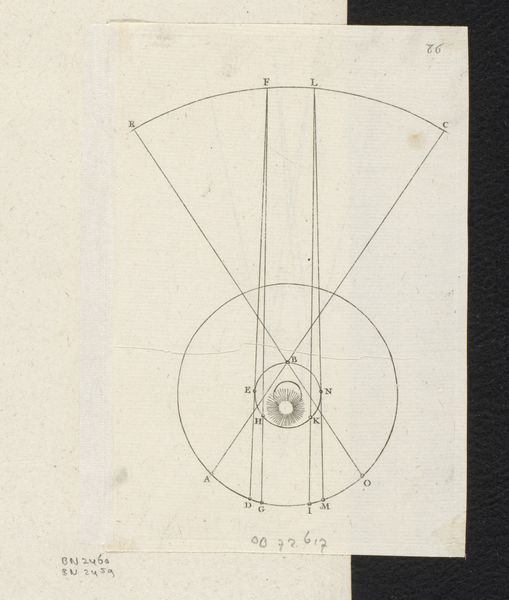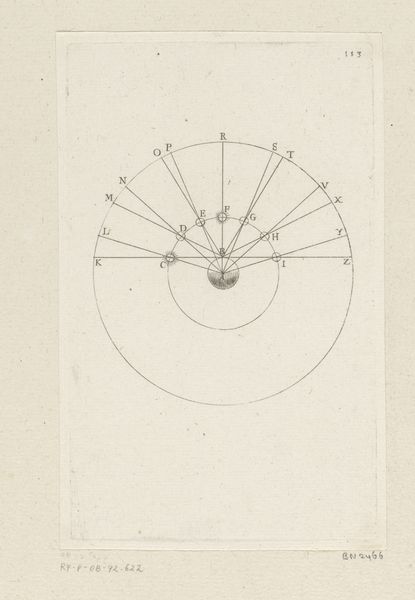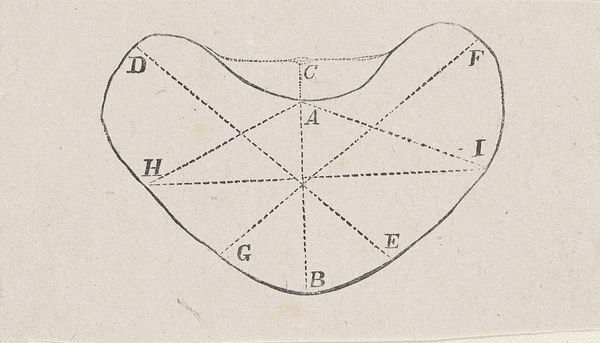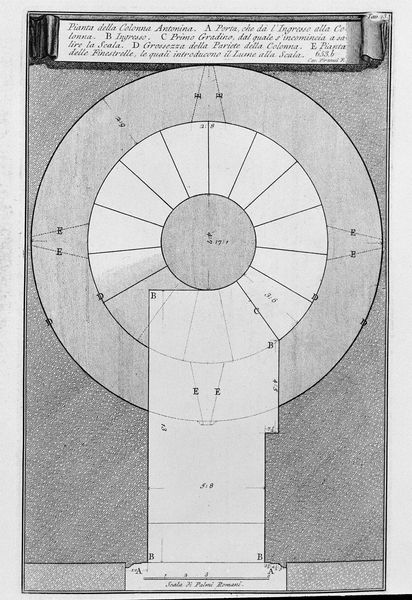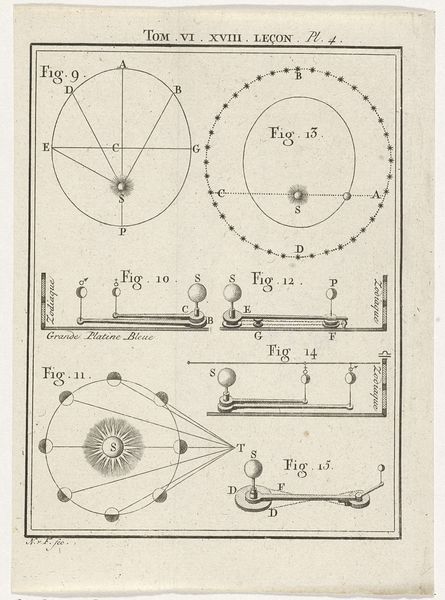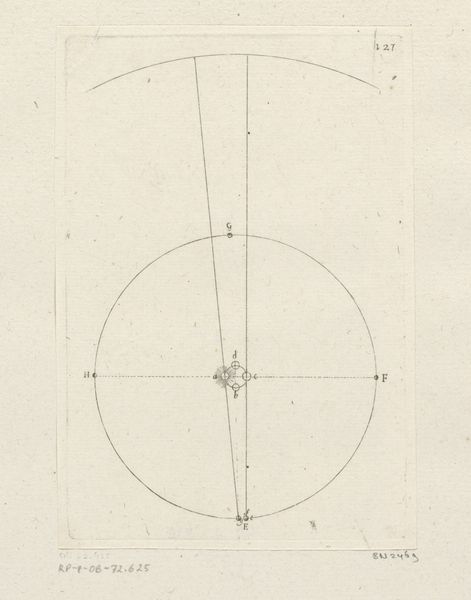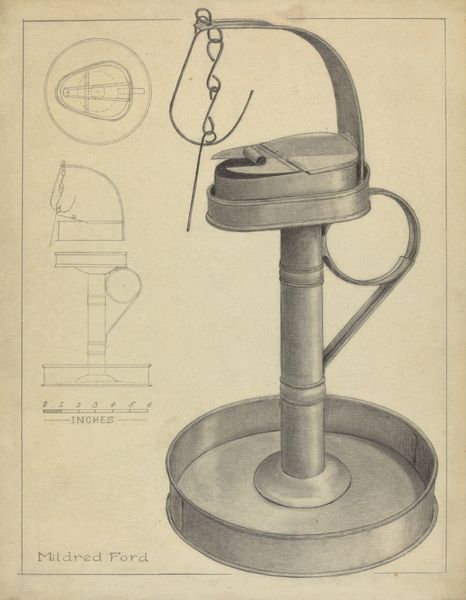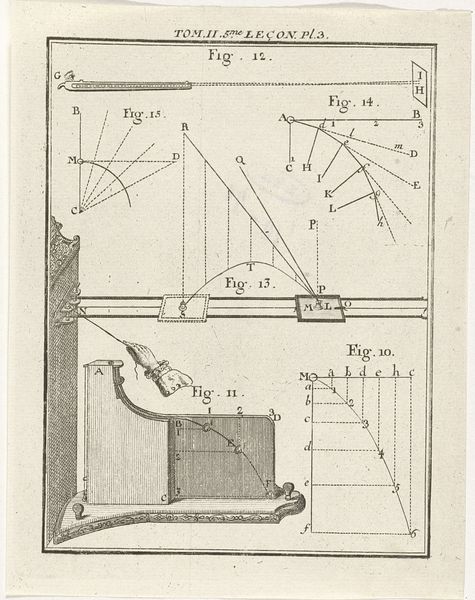
drawing, print, ink, pencil, graphite, engraving
#
drawing
# print
#
pencil sketch
#
ink
#
geometric
#
pencil
#
graphite
#
academic-art
#
engraving
Dimensions: height 133 mm, width 72 mm
Copyright: Rijks Museum: Open Domain
Isaac Weissenbruch made this compass using etching techniques. Etching, a printmaking process, involves using acid to cut into a metal plate, usually copper or zinc, to create a design. The plate is first covered with a waxy, acid-resistant ground. The artist then scratches an image into the ground with a pointed tool, exposing the metal. When the plate is immersed in acid, the exposed metal is eaten away, creating recessed lines. Ink is then applied to the plate, filling the etched lines, and the surface is wiped clean. Finally, the plate is pressed onto paper, transferring the ink and creating a print of the image. This print has a unique textural quality due to the way the ink settles into the etched lines. The precision and detail suggest meticulous workmanship. Consider that the tools and the acid needed to be handled with care; skills that were not necessarily considered "fine art."
Comments
No comments
Be the first to comment and join the conversation on the ultimate creative platform.
